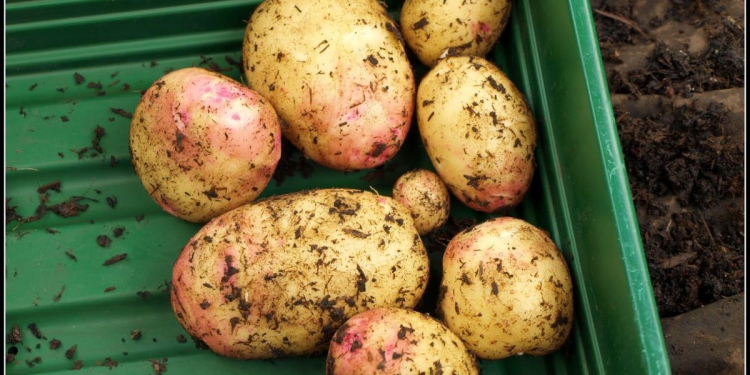EU project “ADAPT” examines how the crop adapts to environmental stress
The potato is one of the most important staple foods in the world. It is also of enormous economic importance as a feedstuff and industrial raw material. However, it is particularly sensitive to the consequences of climate change: heat and drought periods, but also flooding of the cultivated area as a result of heavy rain, cause enormous yield losses. The EU Horizon 2020 project ADAPT (Accelerated Development of multiple-stress tolerAnt PoTato) investigates the stress adaptation of potatoes with the aim of developing more resistant varieties.
“The potato originated in the climatically cool highland regions of South America and is therefore particularly sensitive to heat stress,” says Markus Teige from the Department of Molecular Systems Biology at the Department of functional and evolutionary ecology of the Faculty of life sciences at the University of Vienna. The plant biologist coordinates the EU-Horizon 2020 project ADAPT (Accelerated Development of multiple-stress tolerAnt PoTato).
The aim of the project is to develop new strategies to make the potato fit for the challenging climatic conditions of the future. The work is planned for the next four years, for which the EU has approved a total budget of 5 million euros (grant agreement GA 2020 862-858).
The mechanisms of Stress Adaptation at the molecular level are partially investigated in plant model systems such as the thale cress (Arabidopsis thaliana), but largely not in crops such as potatoes. The increasing heat and drought periods resulting from climate change cause enormous losses in yields. Potato tubers also suffer particularly from flooding of the acreage as a result of heavy rain. As a result, a complete crop failure on the affected area can occur within just a few days. “In the project, we are researching the molecular and phenotypic reactions to combinatorial heat and drought stress, which will be particularly important for the yield of potatoes in the future due to climate change. In cooperation with the Breeders, we want to identify important features that improve the stress tolerance of potato varieties,“ says Teige, summarizing the project’s objectives.
ADAPT is a consortium of ten leading European research institutions, four potato growers, a non-profit EU Organisation, the Austrian Agency for health and food security (AGES) and a technology developer researching the molecular basis of stress adaptation in potatoes.
In the project, the participating researchers combine their Expertise in the fields of Molecular Biology, stress physiology, systems biology and analytics with technology development and Molecular Plant Breeding and work Hand in hand with end-user-oriented organizations for variety typing and trade in order to translate the results obtained directly into practical applications. “Building on our understanding of the molecular relationships, we want to identify new markers for targeted breeding of stress-tolerant potato varieties that are able to deliver stable yields even under the difficult climatic conditions of the future. Our research results should directly reach the relevant stakeholders and end users, be implemented in the breeding programs of potato farmers and have an impact on modern agricultural cultivation practices,“ says Teige.
Scientific Contact:
Dipl.- Chem. Dr. Markus Teige
Department of Biochemistry and cell biology
Department of Ecogenomics and systems biology
University Of Vienna
1090-Vienna, Althanstraße 14 tel +43-1-4277-765 30
markus.teige@univie.ac.at





